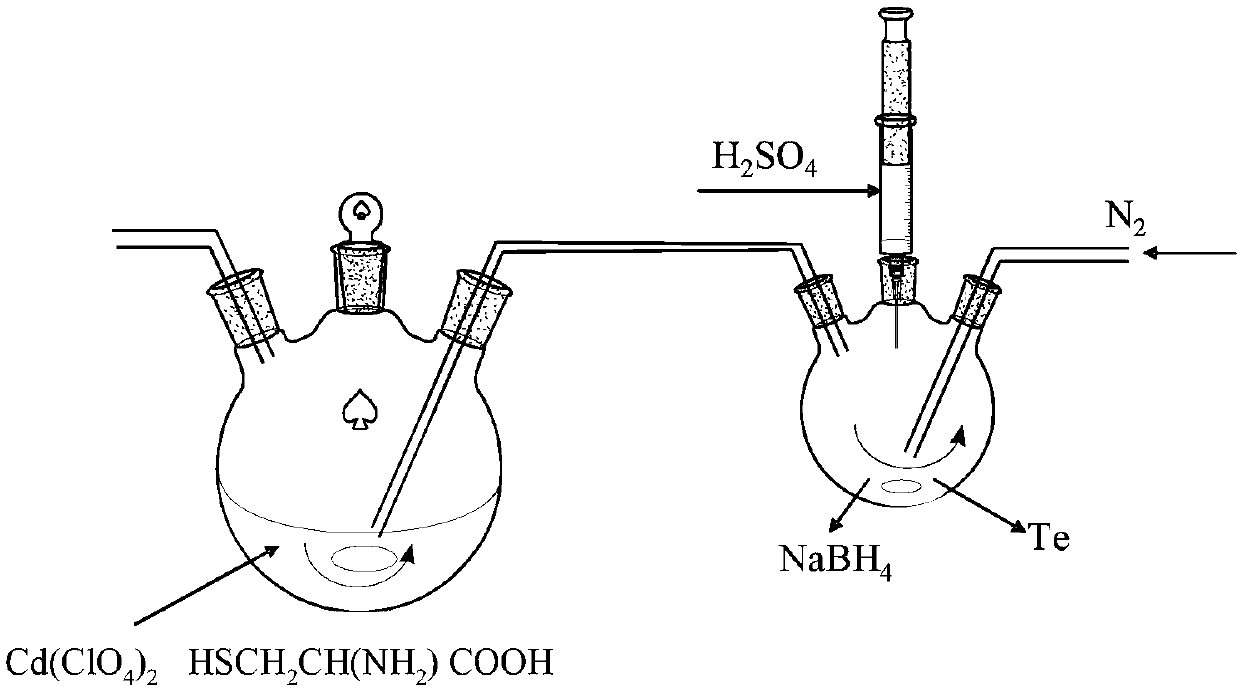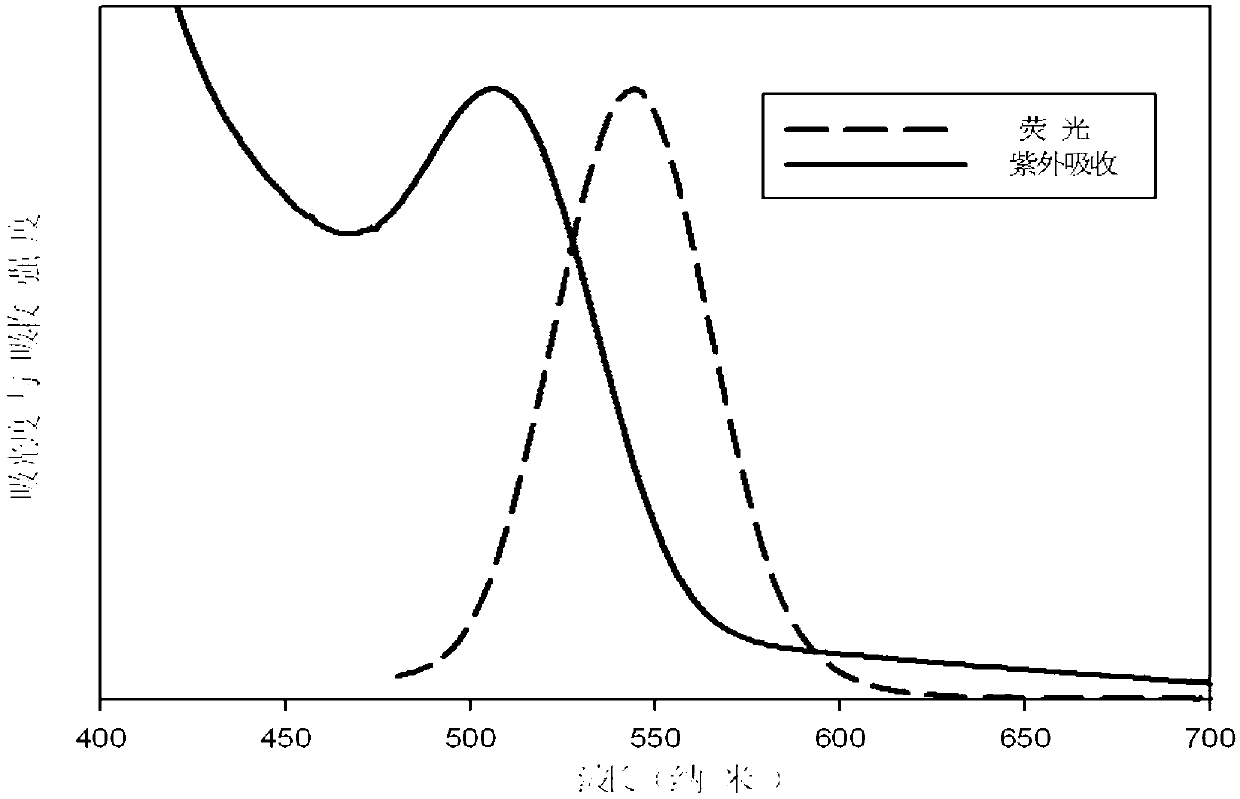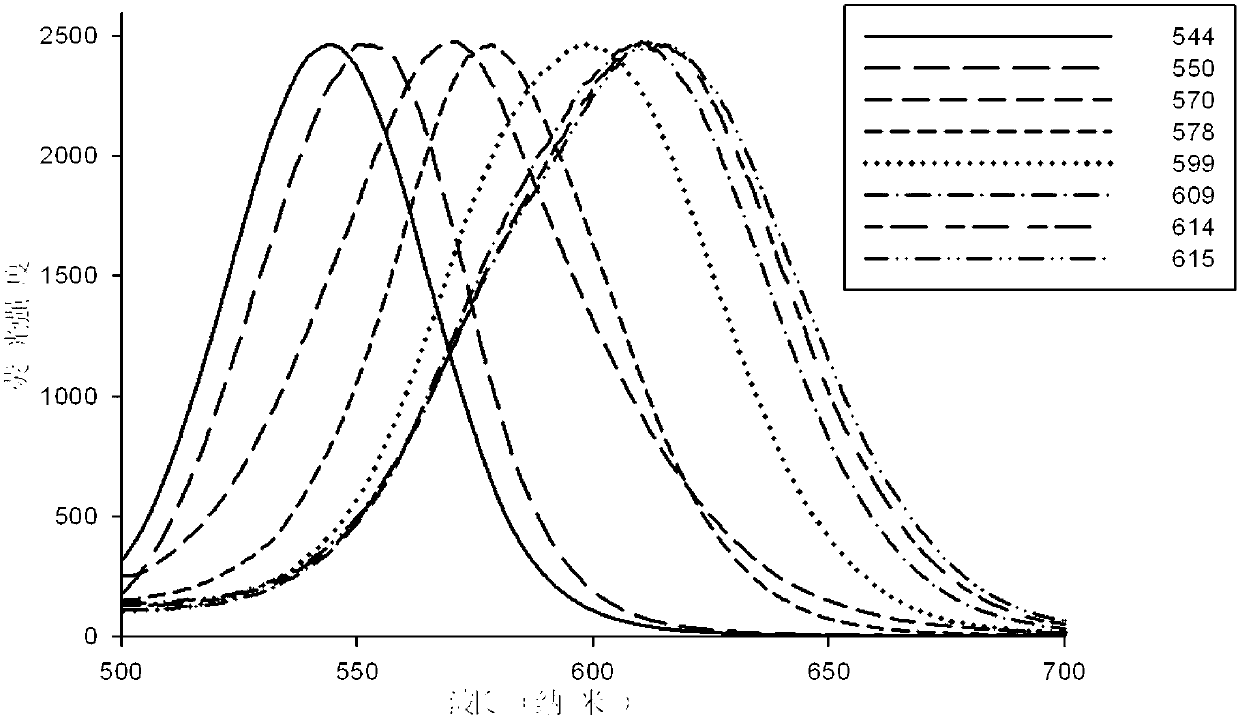Preparation of cysteine surface modified CdTe or CdTe/CdS quantum dot and method for detecting arsenic by using quantum dot
A cysteine and surface modification technology, applied in chemical instruments and methods, fluorescence/phosphorescence, luminescent materials, etc., can solve problems such as no related reports, waste of reagents, cumbersome steps, etc., and achieve strong photochemical stability, The effect of short cladding time and simple operation
- Summary
- Abstract
- Description
- Claims
- Application Information
AI Technical Summary
Problems solved by technology
Method used
Image
Examples
Embodiment
[0034] 1. Preparation of cysteine-CdTe quantum dots.
[0035] A method for preparing the cysteine surface-modified CdTe quantum dots of the present invention includes the following steps:
[0036] (1) Preparation of Cd precursor solution: adopt figure 1 The simple device shown is prepared. First, at room temperature, 0.263g Cd(ClO 4 ) 2 ·6H 2 O(CdCl 2 Or CdAc 2 Powder is also available) and 0.186 g cysteine (Cd 2+ The molar ratio of cysteine to cysteine is 1:2.4), and then add 20 mL of water to dissolve, and dissolve the mixture in water under constant magnetic stirring to obtain the Cd precursor solution; use 1 mol / L NaOH solution to remove the Cd precursor The pH value of the body solution is adjusted to 9.0 (9.0~11.2 can be used), and the volume is adjusted to 40 mL and then transferred to figure 1 In the three-necked flask on the left of the simple device shown in;
[0037] (2) Generate H 2 Te: in figure 1 Add 0.03g Te powder and 0.067g NaBH to the three-necked flask on ...
PUM
 Login to View More
Login to View More Abstract
Description
Claims
Application Information
 Login to View More
Login to View More - R&D
- Intellectual Property
- Life Sciences
- Materials
- Tech Scout
- Unparalleled Data Quality
- Higher Quality Content
- 60% Fewer Hallucinations
Browse by: Latest US Patents, China's latest patents, Technical Efficacy Thesaurus, Application Domain, Technology Topic, Popular Technical Reports.
© 2025 PatSnap. All rights reserved.Legal|Privacy policy|Modern Slavery Act Transparency Statement|Sitemap|About US| Contact US: help@patsnap.com



